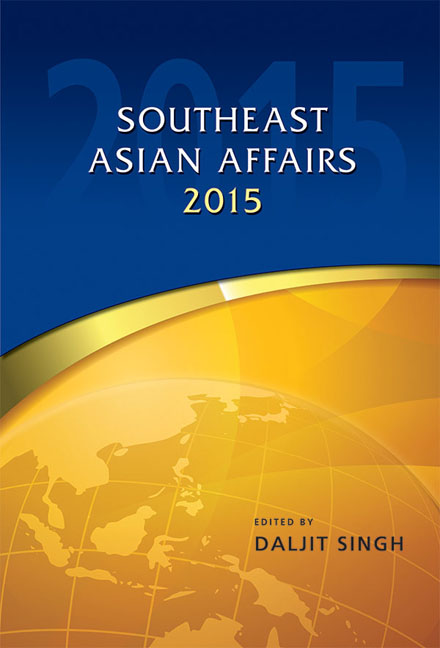Brunei Darussalam: A Time for Stock Taking
from BRUNEI DARUSSALAM
Published online by Cambridge University Press: 19 May 2017
Summary
After a year of busy schedules as ASEAN Chair in 2013, Brunei Darussalam settled into its more routine national activities and concerns in 2014. It was also a year of reflection as it observed its thirtieth year of full sovereignty. As the year progressed it was evident that two main areas of national interest would preoccupy policymakers: the economy, and the recently gazetted Syariah law. In other areas of domestic and international affairs, the sultanate fared reasonably well in accordance with its projected policies.
Hauling the Economy Forward
Economy's Pillars
The long-term forward looking Wawasan 2035 (Vision 2035) continued to provide the national goals for economic and social development while the 10th Five Year Development Plan (2012–17) provided the more immediate targets in development. By 2035, Brunei aims to achieve a sustainable and dynamic economy, with a well-educated and skilled people enjoying a high quality of life. The integrated approach calls for strategic development in such areas as domestic business, education, environment, infrastructure, institutions and social security. Progressive and sustainable growth has been identified as vital in achieving the goals of Vision 2035. Some strategies seem to be working while others are still lagging. For instance, educational, infrastructural and institutional development have been given more emphasis, while economic development, as a result of structural inadequacies and external dependencies has not contributed to a comfortable growth rate. In a titah (speech), Sultan Haji Hassanal Bolkiah, Head of State and Government, announced the establishment of the Council for Vision 2035 (Majlis Wawasan 2035) to assess and ensure the targets of the Vision were realized. The national economy grew at a slow pace, reaching an average of about 1 per cent. According to the Department of Economic Planning and Development, Brunei's second quarter recorded a growth of 0.8 per cent. It noted that the prevailing conditions in the third and fourth quarters were not favourable to Brunei's GDP growth. A report from the OECD stated that ASEAN can expect an average of 5.6 per cent while Brunei is expected to average 1.6 per cent from 2015–19; that would be higher than the 0.9 per cent growth between 2011 and 2013.
- Type
- Chapter
- Information
- Southeast Asian Affairs 2015 , pp. 67 - 86Publisher: ISEAS–Yusof Ishak InstitutePrint publication year: 2015

